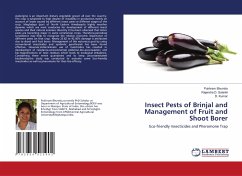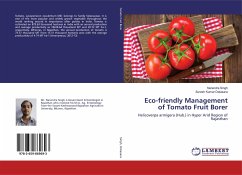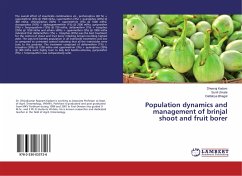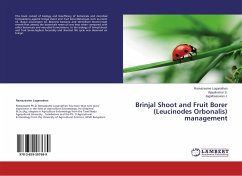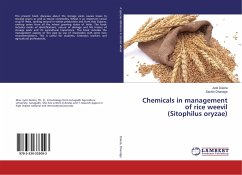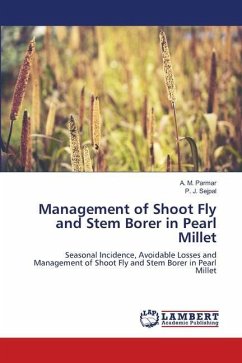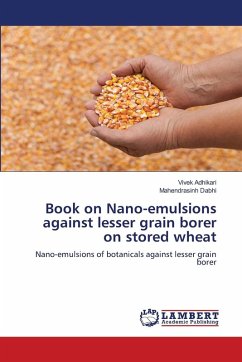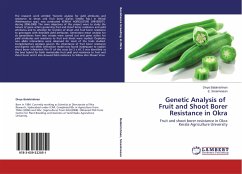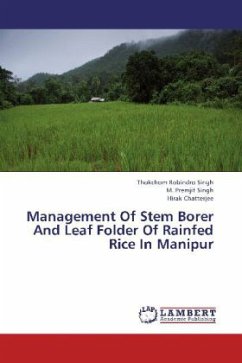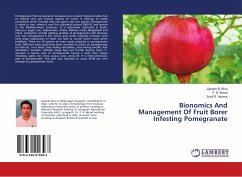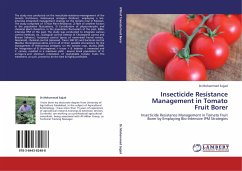
Insecticide Resistance Management in Tomato Fruit Borer
Insecticide Resistance Management in Tomato Fruit Borer by Employing Bio-Intensive IPM Strategies
Versandkostenfrei!
Versandfertig in 6-10 Tagen
52,99 €
inkl. MwSt.

PAYBACK Punkte
26 °P sammeln!
The study was conducted on the insecticide-resistance-management of the tomato fruit-borer, Helicoverpa armigera (Hübner), employing a bio-intensive integrated management strategy on the tomato crop in Pakistan. The study comprised of 1) Host Plant Resistance, 2) Role of weather factors in the population fluctuations, 3) Contribution of physio-morphic and chemical plant-characters, in the population fluctuation of the pest, 4)Bio-intensive IPM of the pest. The study was conducted to integrate various control methods, viz., biological control (release of Chrysoperla carnea and Bracon hebetor,)...
The study was conducted on the insecticide-resistance-management of the tomato fruit-borer, Helicoverpa armigera (Hübner), employing a bio-intensive integrated management strategy on the tomato crop in Pakistan. The study comprised of 1) Host Plant Resistance, 2) Role of weather factors in the population fluctuations, 3) Contribution of physio-morphic and chemical plant-characters, in the population fluctuation of the pest, 4)Bio-intensive IPM of the pest. The study was conducted to integrate various control methods, viz., biological control (release of Chrysoperla carnea and Bracon hebetor,), botanical control (spray of neem-seed kernel extract, Neemosol), chemical control (spinosad, Tracer 240 SC) and bacterial control (Bacillus thuringiensis) alone and in all of their possible interactions for the management of Helicoverpa armigera, on the tomato crop, during 2008. An Integration of B. thuringiensis + tracer + B. hebetor + neemosol and C. carnea, resulted in a maximum yield , lowest larval population of H. armigera and minimum infestation of marketable tomato fruits. This treatment, as such, proved to be the best & highly profitable.



